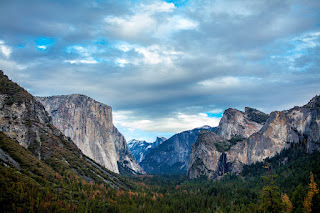 ONE HEARTBEAT AWAY
ONE HEARTBEAT AWAYPART 47
(Mark Cahill's book)
"It's Not Safe To Die."
I spoke to a young man one day who
mentioned that he had been injured
and wound up on an emergency-room
operating table. He said his heart had
stopped beating, and as his soul rose up
out of his body, immediately the sense of
an evil presence began to come over him,
and he could hear an evil hissing laughter.
He told me he was glad to get back into his
body, and be alive! He now knows how
real evil is.
A respiratory nurse who works in an
emergency room, told me about a patient
who had gone "code red" - he flat-lined .
She and some other medical personnel
rushed over with the defibrillator to try to
bring him back to life. They applied the
paddles and revived him. She said that he
started screaming and shouting, "The heat!
The heat!" Then his heart stopped again.
They brought him back a second time.
He shouted "The flames, the flames."
They lost him again. Four times the man flat-
lined, and was brought back, shouting about
the heat or the flames.
After the last time he died and they couldn't
bring him back. She said all the doctors and nurses just stood there for a few minutes and stared at the body. They all knew that man
went to hell. He was screaming it to them before he even got out of here.
I have met several people (all in a non-drug,
non-alcoholic state) who experienced a
burning hell, rather than being with Jesus,
or the typical "tunnel and white light "
scenario. So, don't believe that sweetness-and -light near death stories are the only kind
people report.
Dr Maurice Rawlings, a cardiologist, has witnessed numerous patients during and after
their near-death experiences and reported his findings in Beyond Death's Door. After interviewing 300 patients immediately after resuscitation, Dr. Rawlings says that nearly half
of them reported seeing a lake of fire, devil-like figures and other sights reflecting the existence
of hell. "There is a life after death," Rawlings
said "and if I don't know where I'm going it is
not safe to die."
He also discovered that
 when patients who had
when patients who had described their experiences
in hell vividly were asked
about those experiences a
few days later, they couldn't
recall them. This may explain why researchers
find only "good cases" He believes some patients change their story because they are embarased to admit where they have been, even to their families, while those who have heavenly visions remembered and reported the details.
So don't get a false sense of security, that what follows death is always a pleasant thing. Hell
is a very real place - one that you really don't want to go to when you die.
Voltaire, the famous French author, philosopher and atheist, was once asked if he would say something to comfort a friend who was dying. Voltaire responded , " I don't think I can do that. The thought that there might really be a hell plagues me continually."
next post 26th October
No comments:
Post a Comment